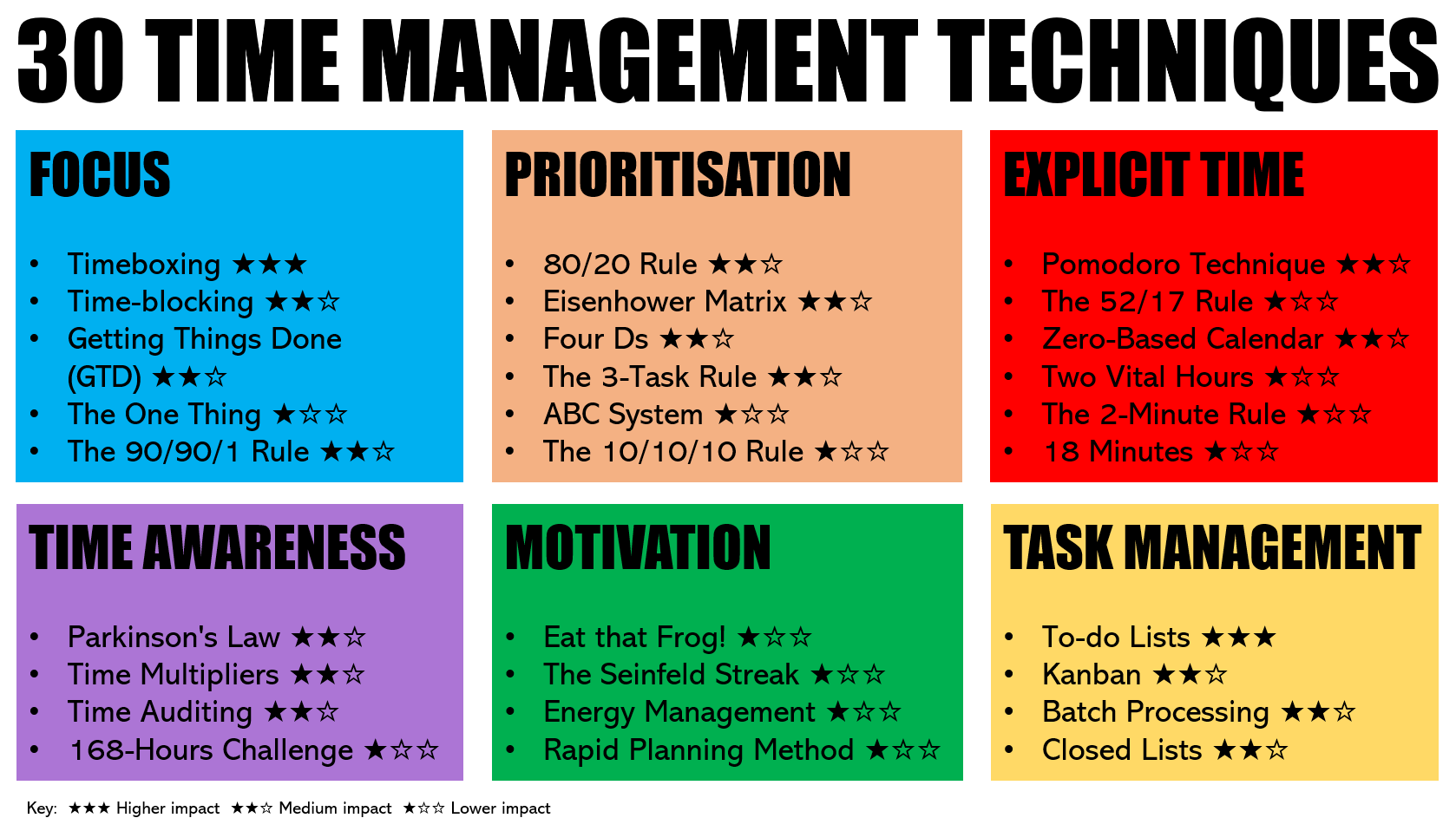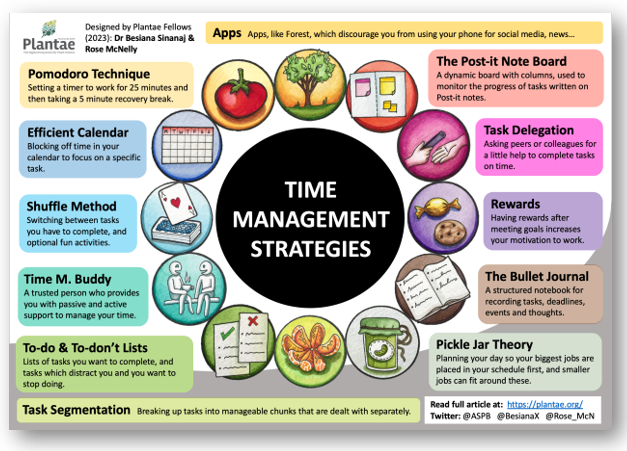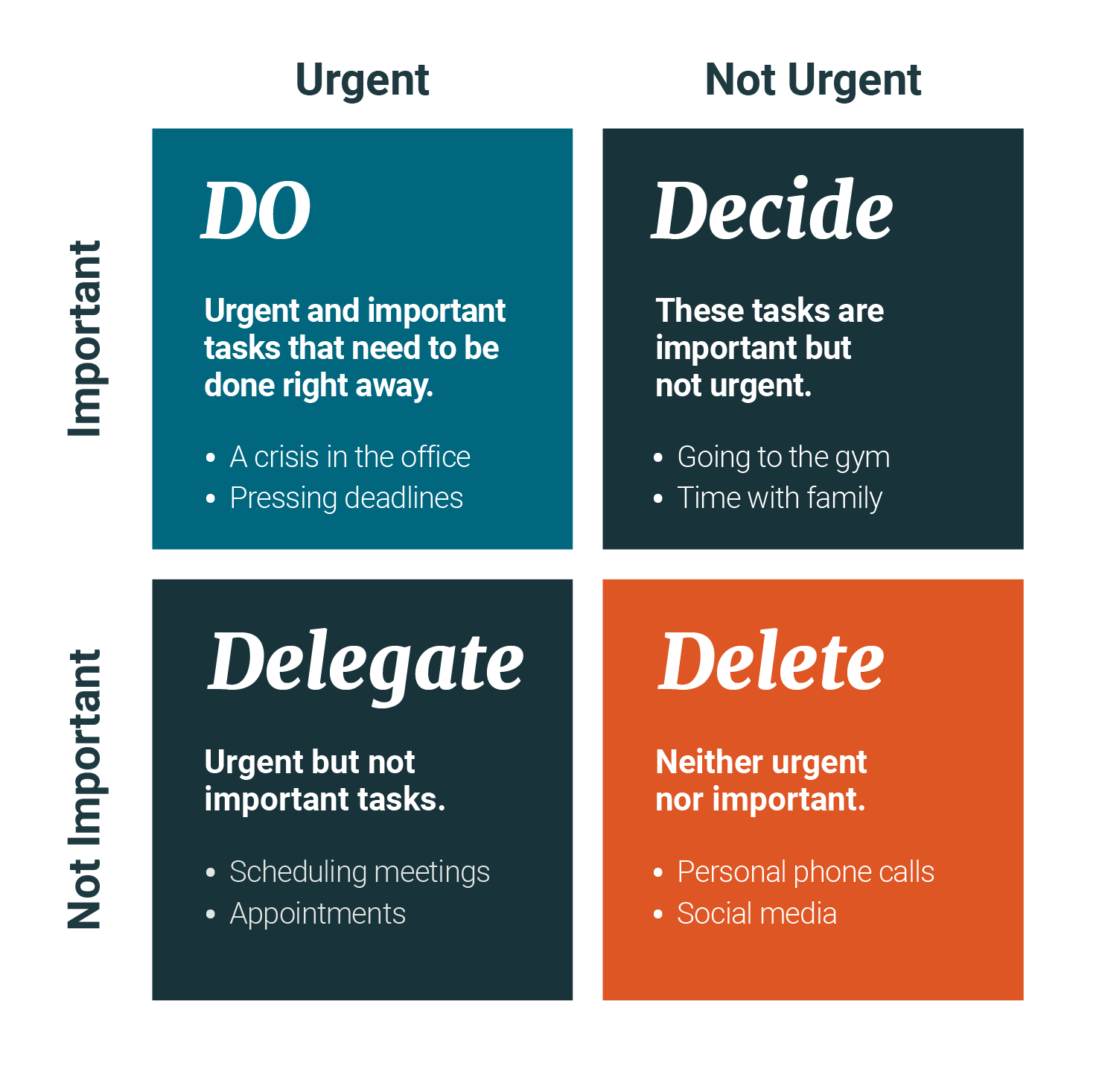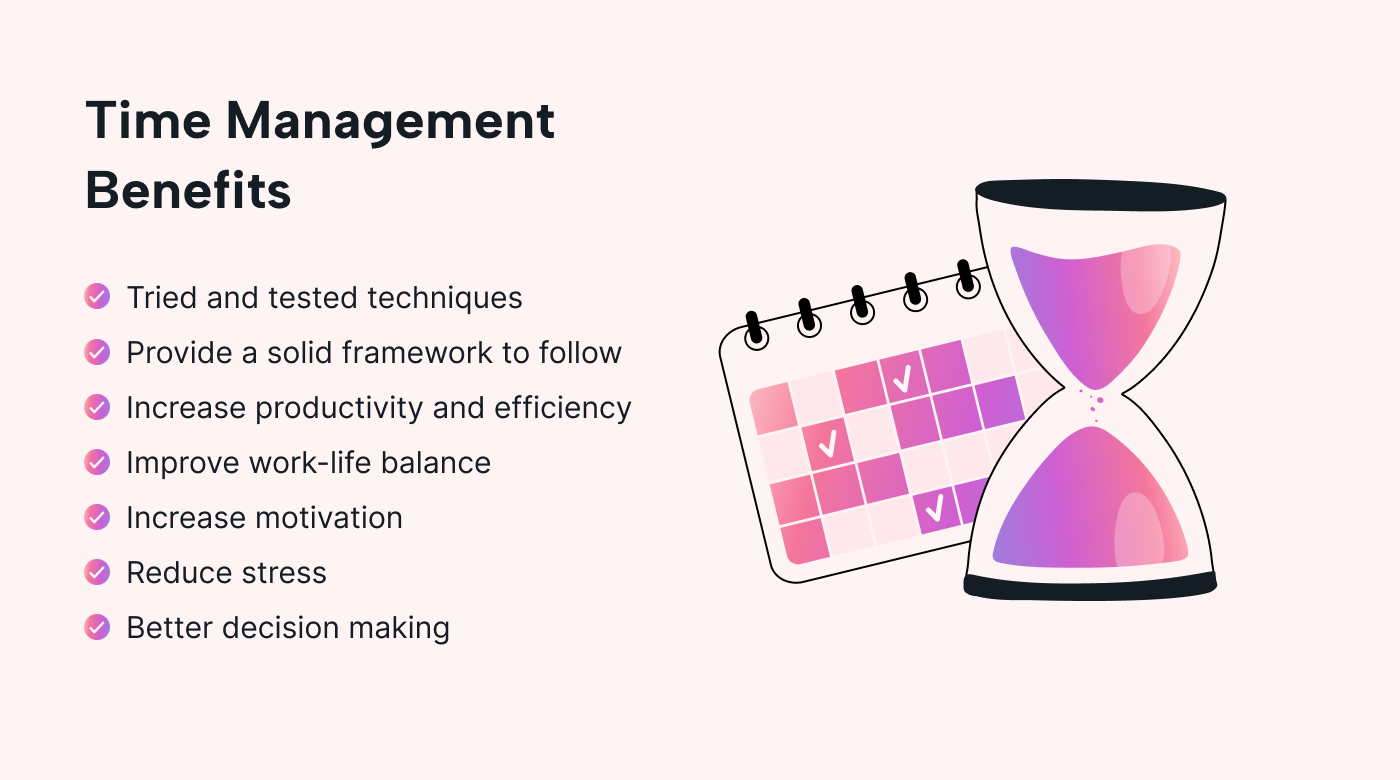Understanding Time Management
What is Time Management?
Time Management is the process of organizing and planning how to divide your time between different activities to maximize efficiency and productivity. Effective time management enables individuals to work smarter rather than harder, ensuring that even when pressured and facing tight deadlines, they are still able to achieve specific goals and maintain a balance between work, leisure, and personal time. Efficient time management is crucial because it helps reduce stress, allows for better control over your to-do list, and can significantly enhance productivity in both professional and personal life. According to a study published by Harvard Business Review, people who effectively manage their time report a 50% higher level of workplace satisfaction and are more likely to meet professional objectives (source).

Importance of Time Management
The importance of time management cannot be overstated. It is an essential skill that impacts every area of life. By mastering the art of time management, individuals can experience a multitude of benefits:
- Increased Productivity: Prioritizing tasks ensures that the most important tasks receive the attention they need, allowing for more to be accomplished in less time.
- Less Stress: When you have a clear plan for what needs to be done and how much time you have, the likelihood of stress decreases, as does the feeling of overwhelm.
- Better Decision Making: With proper time management, critical tasks are not postponed to the last minute, enabling more thoughtful and informed decision-making.
- Enhanced Opportunities: Being efficient with time management opens up additional chances for both professional growth and personal development.
Moreover, well-managed time nurtures self-discipline and fosters a sense of achievement, motivating individuals to strive for even more significant accomplishments. By molding it into a daily habit, one can set the foundation for a balanced and fulfilling life. Unlocking the tools and strategies for time management, as discussed in the subsequent sections, will aid you in unleashing your fullest potential.
Top Time Management Strategies
Setting Clear Goals
Establishing clear goals is the cornerstone of effective time management. By defining specific, measurable, achievable, relevant, and time-bound (SMART) goals, you set a solid foundation for productivity and efficiency. Whether you’re managing your personal life, career, or hobbies, having a structured set of objectives gives you direction and a clear end point.
To set clear goals, start by breaking down broad ambitions into smaller, manageable tasks. This allows you to focus on what truly matters and allocate your time efficiently. As you achieve these smaller tasks, your momentum builds, propelling you toward your larger objectives.
Consider leveraging frameworks such as OKRs (Objectives and Key Results) to maintain alignment between your goals and overarching vision. These methods provide measurable benchmarks to track progress and ensure accountability. For more insight into setting clear goals, visit MindTools.
Prioritizing Tasks
Once goals are set, the next step is prioritizing tasks. Not everything on your to-do list holds the same weight or urgency. To prioritize effectively, consider using the Eisenhower Box, which helps distinguish between what’s urgent and important, ensuring that you focus on tasks that align with your primary objectives.
When prioritizing, identify essential tasks by asking yourself which activities provide the most value or have the most significant impact on your goals. Concentrate on these high-impact tasks during peak productivity hours. Implementing techniques like Pareto Principle—which suggests that 80% of your results come from 20% of your efforts—helps in recognizing which tasks deserve your attention.
Prioritizing not only increases efficiency but also reduces stress by preventing overwhelm. Learn how to prioritize by exploring resources available on The Balance Careers.

Using Time Management Tools
Incorporating time management tools into your daily routine can drastically improve productivity. These tools assist in tracking time, organizing activities, and maintaining focus. Options range from simple to-do list apps to comprehensive project management software, each designed to cater to different needs and preferences.
Consider using tools like Trello, Asana, or Todoist to organize and track tasks. These platforms offer features such as task categorization, deadline reminders, and collaborative spaces that enhance efficiency and accountability. For those looking to manage time in smaller increments, try applications like Focus@Will or Forest that utilize time tracking and gamification to promote concentration.
By harnessing the power of time management tools, you empower yourself to stay organized, plan effectively, and enhance productivity. For a comprehensive comparison of various time management tools, check out resources like PCMag.

Mastering these time management strategies can transform how you navigate your tasks and objectives, paving the way for a more structured and fulfilling professional and personal life.
Enhancing Productivity with Time Management
Daily Planners and Scheduling
In today’s fast-paced world, effective time management is crucial for enhancing productivity. One powerful tool in managing your time is the use of daily planners and scheduling. Daily planners serve as a visual roadmap, helping you outline tasks, set deadlines, and allocate time effectively. By laying out your day, planners reduce the chaos of juggling multiple responsibilities.
Key benefits of daily planners include:
- Increased focus and efficiency: By clearly delineating tasks, you minimize the risk of distractions.
- Better task prioritization: Assigning specific time slots to tasks enhances their importance and urgency.
- Reduced stress and anxiety: Knowing what needs to be done next curtails the feeling of being overwhelmed.
Scheduling techniques using daily planners also encourage more accurate time estimates, promoting realistic expectations of what you can achieve in a day. For a more in-depth understanding of time management, you can explore reliable sources like Forbes on Planners and Personalized Scheduling.
Time Blocking Technique
Time blocking is a transformative time management strategy that allocates dedicated blocks of time for specific tasks or activities. This method ensures you focus solely on one task at a time, launching productivity into an upward spiral. By assigning a fixed schedule to tasks, you eliminate the ambiguity of “to-do lists” and translate them into actionable time slots.
Advantages of the time blocking technique include:
- Enhanced concentration and minimal distractions: Focusing on one task at a time sharpens your attention.
- Optimized energy levels: By aligning tasks with your natural energy peaks, you maximize efficiency.
- Elimination of multitasking: Time blocking prevents task overlap, allowing for deeper work sessions.
Embracing this strategy often results in a heightened sense of accomplishment and progress. This method can be an excellent addition to your productivity toolkit, aligning with other strategies discussed previously in our “Top Time Management Strategies” section, like setting clear goals and prioritizing tasks.
By integrating these time management techniques into your daily routine, you’ll not only boost your productivity but also enhance your overall quality of life. For more tips on successfully implementing time blocking, consider referring to expert resources such as Harvard Business Review’s Insights on Time Management.
Achieving Work-Life Balance
Strategies for a Balanced Life
Attaining a healthy work-life balance is crucial in today’s fast-paced world. When balanced, you can boost your productivity, foster stronger relationships, and enhance your overall well-being. Here are some strategies to help you achieve that balance:
- Set Clear Boundaries: Establish boundaries between your professional and personal life. This means setting specific work hours and sticking to them, ensuring you have time to unwind and recharge.
- Prioritize Self-Care: Make time for activities that rejuvenate your mind and body, such as exercise, hobbies, and relaxation. Self-care is not a luxury but a necessity for maintaining balance.
- Practice Mindfulness: Incorporate mindfulness practices such as meditation or deep breathing to reduce stress levels. Mindfulness can help you stay present and manage daily challenges more effectively.
- Be Flexible: While routine is essential, flexibility allows you to adapt to unforeseen circumstances without becoming overwhelmed. This adaptability is key to maintaining balance in a dynamic environment.
These strategies, outlined with precision and empathy, empower you to make informed decisions that enhance your life quality. You can explore more ways to improve your work-life balance by visiting reliable sources like Harvard Business Review.
How Time Management Affects Personal Life
Time management is more than just an organizational tool—it’s a direct influence on your personal life. By mastering this skill, you can make significant changes to how you engage with daily challenges and opportunities:
- Enhanced Relationships: Efficient time management ensures you have more quality time for family and friends, allowing you to nurture important personal relationships.
- Improved Mental Health: With structured time management, you can reduce stress and anxiety levels. This leads to better mental health and a more positive outlook on life.
- Increased Personal Time: Proper time allocation not only boosts work productivity but also allows you to pursue personal interests and passions, leading to a more fulfilling life.
- Refined Decision-Making: When you’re not constantly in a rush, you can make more thoughtful and strategic decisions, both personally and professionally.
Effective time management is a transformative tool that shapes your personal life for the better. By adopting these insights and strategies, you can lay the groundwork for a balanced and harmonious life, allowing you to thrive both at work and home.
Conclusion: Mastering Time Management
Recap of Time Management Strategies
Mastering time management is an essential skill for boosting productivity and achieving a harmonious work-life balance. Let’s briefly recap the key strategies we’ve covered:
- Setting Clear Goals: Defining clear and achievable goals is the cornerstone of effective time management. By setting targets, you give yourself a clear path and a sense of purpose.
- Prioritizing Tasks: Organize your tasks by importance and deadlines. The Eisenhower Matrix is a powerful tool to help categorize and prioritize tasks efficiently.
- Using Time Management Tools: Embrace technology with tools like calendars, task lists, and apps designed to streamline your workflow. Platforms, such as Trello, offer flexible solutions for task management.
- Daily Planners and Scheduling: Structure your day with planners to align your tasks and goals. Incorporate breaks and ensure your schedule is realistic.
-
Time Blocking Technique: Allocate specific blocks of time for different tasks to minimize distractions. This technique not only helps in maintaining focus but also enhances productivity.
Encouragement to Implement Changes
While understanding these time management strategies is paramount, transformation ultimately depends on your willingness to take action. Remember, implementing these changes is a journey, not a sprint. Begin with small adjustments in your daily routine and gradually integrate more complex strategies as you feel comfortable.
Realize that fluctuations in efficiency are normal, and flexibility is crucial. Adjust your strategies as needed, and always aim for continuous improvement. Consider bookmarking authoritative resources like Mind Tools for ongoing tips and insights.
By embracing these strategies and remaining committed to your personal growth, you’ll find yourself not only succeeding in your professional sphere but also thriving in your personal life. The mastery of time management is more than just a skill—it’s a gateway to a more fulfilling and balanced life. Your journey begins now; seize it and transform the way you engage with every moment.


